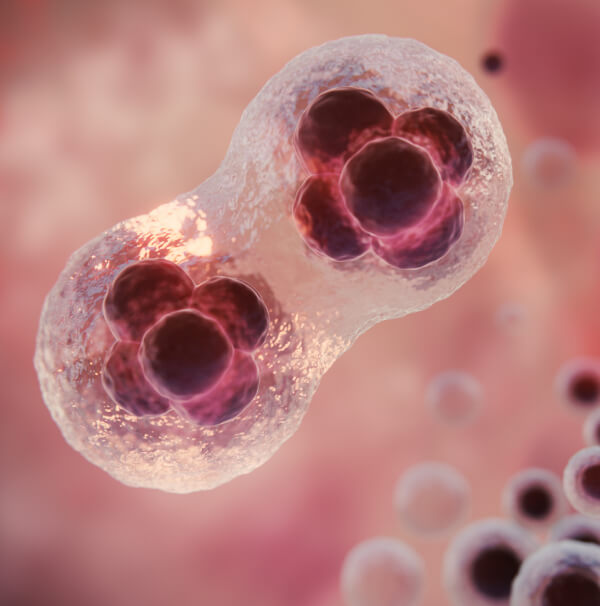
IVF with Donor Embryos
InviCure IVF is one of the best IVF with donor embryos treatment centre in India. IVF with embryo donation, also known as third party reproduction, involves the transfer of an embryo created from the gametes of a male and female, which are not sourced from the recipient or her partner. In this process, individuals or couples who have completed their own fertility treatments and have surplus embryos generously donate them to those struggling with infertility. These donated embryos are carefully selected and transferred to the recipient’s uterus during an IVF procedure. IVF with embryo donation provides hope and an alternative pathway to parenthood for individuals or couples who are unable to conceive using their own gametes, allowing them to experience the joy of pregnancy and childbirth.
Indications for donor embryo
Donor embryos are recommended in various situations where couples face challenges in conceiving or carrying a pregnancy. Here are some common indications for donor embryos:
- Gonadal dysgenesis: This refers to a condition where there is abnormal development of the gonads (ovaries or testes) in males or females. In such cases, using a donor embryo can help overcome the infertility caused by this condition.
- Premature ovarian failure or iatrogenic ovarian failure: Some women experience early menopause or loss of ovarian function due to factors like surgery or radiation therapy. If a woman is unable to produce viable eggs, using a donor embryo can be a suitable option, especially if her partner also has severe issues with sperm production.
- Hereditary diseases: If a couple carries a genetic condition that could significantly impact the health of the baby, opting for a donor embryo can help avoid passing on the genetic disease to the child.
- Menopause with male factor infertility: When a woman has reached menopause, but her male partner has infertility issues, using a donor embryo can provide a chance for the couple to have a child.
Procedure of embryo donation
The procedure of embryo donation involves the transfer of either cryopreserved embryos that were previously created by donors or couples undergoing fertility treatment, or fresh embryos created specifically for donation from donor sperm and donor eggs. These embryos are transferred to a recipient with the goal of achieving pregnancy.
The process typically includes the following steps:
- Evaluation of the recipient: The recipient undergoes medical assessments and tests to evaluate their suitability for embryo donation.
- Evaluation and selection of donor: Donors are carefully evaluated, considering factors such as medical history, physical characteristics, and compatibility with the recipient couple.
- Counseling of recipient couple and donor: Both the recipient couple and the donor receive counseling to discuss the emotional, legal, and ethical aspects of the process.
- Consent of recipient couple and donor: Legal consent is obtained from both the recipient couple and the donor, outlining their agreement and understanding of the embryo donation process.
- Controlled ovarian stimulation of egg donor: If fresh embryos are being created, the egg donor undergoes hormonal treatment to stimulate the production of multiple eggs.
- Oocyte retrieval of egg donor: Eggs are retrieved from the donor’s ovaries through a minor surgical procedure under anesthesia.
- Endometrial preparation of the recipient: The recipient’s uterine lining is prepared through hormone therapy to create an optimal environment for embryo implantation.
- In vitro fertilization and embryo development: The retrieved eggs are fertilized with donor sperm in the laboratory to create embryos. The embryos are monitored and allowed to develop for a few days.
- Embryo transfer to the recipient: One or more selected embryos are transferred into the recipient’s uterus using a catheter.
- Pregnancy test: After a certain period, a pregnancy test is conducted to determine if the embryo transfer was successful and if pregnancy has been achieved.
Factors for procedural success
Recipient Factors
Recipient factors play a significant role in the success of embryo transfer during assisted reproductive techniques. Several factors can influence the outcome, including:
- Age: Women younger than 40 years tend to have higher implantation and pregnancy rates compared to older women.
- Endometrial thickness: A thicker endometrial lining, typically greater than 7mm, is associated with improved implantation and success rates.
- Quality of embryo: The quality of the embryo plays a crucial role in determining the chances of pregnancy. High-grade embryos have been shown to increase the likelihood of successful implantation and pregnancy rates.
- High BMI: Higher body mass index (BMI) can have a negative impact on the success of embryo transfer. It is generally recommended for individuals with a higher BMI to work towards achieving a healthier weight before undergoing the procedure.
- Uterine pathology: The presence of uterine pathologies such as fibroids or polyps can inhibit implantation and negatively affect the success of embryo transfer. Addressing and treating any uterine abnormalities prior to the procedure may improve the chances of successful implantation.
- Difficult embryo transfer: The ease of embryo transfer can impact the success of the procedure. Difficulties during the transfer process may result in a lower chance of successful implantation.
Donor Factors
Donor factors play a crucial role in the success of assisted reproductive techniques using donated oocytes. Here are two important donor factors to consider:
- Age: The age of the oocyte donor is a significant factor in determining the success rates of the procedure. Donors in the age range of 21 to 34 years tend to have higher success rates compared to older donors. This is because younger donors typically have a higher quantity and better quality of oocytes, which increases the chances of successful fertilization and implantation.
- Number of mature oocytes (M2) retrieved: The number of mature oocytes retrieved from the donor is another important factor to consider. A higher number of mature oocytes obtained during the retrieval process is associated with a higher live birth rate. This is because having more oocytes provides a larger pool of viable embryos for selection and transfer, increasing the chances of successful implantation and pregnancy.
These donor factors, age, and the number of mature oocytes retrieved are critical in determining the potential success of the assisted reproductive procedure. By selecting younger donors with a sufficient number of mature oocytes, healthcare providers can optimize the chances of achieving a successful pregnancy for the recipients.
Implications of embryo donation
Embryo donation has important implications for both the recipients and the donors involved in the process. Here are the implications of embryo donation:
On Recipients:
- Good obstetric outcome: Embryo donation generally leads to positive obstetric outcomes, with higher success rates of achieving a pregnancy and giving birth to a healthy baby. However, there may be a slightly increased risk of hypertensive disorders and the need for cesarean section compared to natural conception.
- No added risk of congenital malformations: Studies have shown that there is no significant increase in the risk of congenital malformations in children born through embryo donation. The risk is similar to that of children conceived naturally or through other fertility treatments.
On Donors:
- Short-term risks of egg donation: Donors may experience certain short-term risks associated with the egg donation process. These risks include ovarian hyperstimulation syndrome (OHSS), intra-abdominal bleeding, infection, ovarian torsion, and temporary subfertility. However, serious complications are rare.
- Psychological distress and long-term risks: Donors may experience some psychological distress related to the donation process. However, studies suggest that such distress is usually temporary and resolves over time. Long-term risks associated with embryo donation are rare.
It is important for both recipients and donors to be fully informed about the implications and potential risks involved in embryo donation. Healthcare professionals and fertility clinics play a crucial role in providing appropriate counseling, support, and monitoring throughout the process to ensure the well-being and safety of all parties involved.
Why Choose Us?
We Receive the Best Patient’s Review.

Adeola Ogunjimi

Jessica Wong

Babatunde Okeke

Damilola Ajayi

Funmilayo Akinwande
Blogs on Infertility, IVF, IUI and More
Valuable advice and informative articles on lifestyle, fertility, and infertility for both men and women.
Get a FREE Consultation From Our Fertility Experts Today!






